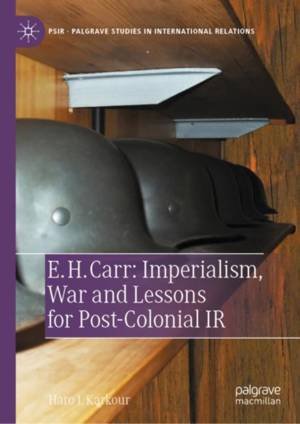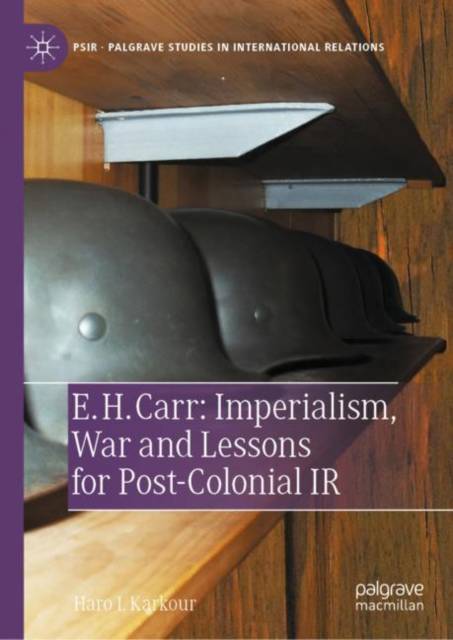
- Retrait gratuit dans votre magasin Club
- 7.000.000 titres dans notre catalogue
- Payer en toute sécurité
- Toujours un magasin près de chez vous
- Retrait gratuit dans votre magasin Club
- 7.000.0000 titres dans notre catalogue
- Payer en toute sécurité
- Toujours un magasin près de chez vous
E. H. Carr: Imperialism, War and Lessons for Post-Colonial IR
Haro L KarkourDescription
This book highlights important parallels between Carr and three influential figures in the first wave of post-colonialism--DuBois, Césaire and Fanon--on the analysis of imperialism and the causes of war. Specifically, Carr's analysis of imperialism and war parallels the first wave post-colonial thinkers in two respects. First, Carr's work historically situates imperialism in the context of the social question in Western democracies. Second, Carr's work provides an ideology critique to Enlightenment rationalism, which postulates that 'reason could determine what [are] the universally valid moral laws' and thus 'by the voice of reason men could be persuaded both to save their own immoral souls and to move along the path of political enlightenment and progress' (Carr 1984, 22 and 24). Carr's ideology critique exposes the Enlightenment's pretences of reason and universality as a deceptive plea that legitimates imperialism. These parallels, the book argues, reveal that Carr didnot only recognise global hierarchy, but also theorised the role of what Julian Go refers to as the 'episteme of empire'--that is, 'the meanings and modalities of seeing and knowing that ... accompanied empire and made it possible in the first place' (Go 2017, 19-20). Carr's IR theory, in short, was much closer to post-colonial thinking than previously appreciated in the discipline.
Spécifications
Parties prenantes
- Auteur(s) :
- Editeur:
Contenu
- Nombre de pages :
- 193
- Langue:
- Anglais
- Collection :
Caractéristiques
- EAN:
- 9783030993597
- Date de parution :
- 26-04-22
- Format:
- Livre relié
- Format numérique:
- Genaaid
- Dimensions :
- 148 mm x 210 mm
- Poids :
- 390 g

Les avis
Nous publions uniquement les avis qui respectent les conditions requises. Consultez nos conditions pour les avis.






